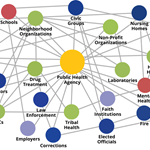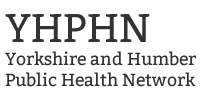
“The wages of sin” – who puts the sin in ‘sin taxes’?
08 October 2024
Prevention pioneer Pekka Puska recently published his thoughts on health-related taxes in a recent editorial in the European Journal of Public Health. As a public health professional working on commercial determinants of health here in Yorkshire and the Humber, I agree with his conclusion of health taxes (or ‘sin taxes’ as the article describes them) as a “win-win situation for both state budgets and for effective improvement of public health, and consequently also for reducing health care and societal costs”. However, there was one part of the article supporting alcohol, sugar, and similar taxes that left me with a sour taste…
The ‘sin taxes’ moniker is used to describe the various taxes and levies that are, or could be, placed on unhealthy commodities around the world. The importance and power of industry framing is becoming more well known throughout public health and beyond, so let’s look at that term again through a commercial determinants of health lens: sin tax.
Who is committing the sin here? Is it the consumer? The customer? The… individual? Industry framing is fraught with individualism as a central tactic to place the blame for ill-health on the choices and actions of individuals. We’ve seen examples of this everywhere: from the gambling industry’s “When the fun stops, stop” to the fossil fuel industry’s “Carbon Footprint” concept through to DrinkAware’s “Drink responsibly” slogan. This directs attention, policy, and precious public resources towards less-effective individual-level solutions. Instead of addressing the billions of pounds worth of aggressive marketing to manipulate our environment so that we buy unhealthy products, we think first of treatment programmes. Instead of calling out and preventing the ongoing immense environmental damage caused by multi-national corporations, we educate Joe Public about how to reduce their personal carbon emissions. The veil on this is beginning to lift.

Figure 1: Illustration created by Eoin Kelleher @EoinKr for © WHO, 2024
Industry framing also crops up when governments propose population-level public health solutions by crying “nanny state”. When faced with this refrain, I tell an illustrative story of someone buying a burger for lunch. A person buying a burger is, of course, making a choice. However, if that person is watching TV and sees an advert for a burger, then idly scrolls social media and sees an advert on their feed for a burger, leaves the house to catch a bus and at the bus stop is an advert for a burger, gets on the bus and on the back of their bus ticket is a coupon for a burger, when it reaches their stop there’s a fast food burger branch in the middle of their town, then they go in and buy a burger… is that still free choice, free will? In that situation, I ask you to consider: who’s the nanny?
Back to so-called ‘sin taxes’. These taxes and levies are undoubtedly part of the population-level solutions that we need to combat commercial determinants of ill-health. But then, why call them ‘sin’ taxes? Bringing in the concept of ‘sin’ adds a detrimental and unnecessarily extreme ‘immoral’ element to the act of buying the burger. Are they committing a sin by buying the burger, if billions have gone into marketing this product to them? If the food is formulated and perfected over years and processed it to give it addictive qualities? If they live in a food swap with high availability of low-nutrient foods, and poor access to affordable healthy food?
The article repeats the dogma that consumers can avoid taxed products “with their own healthier choices”. We as a health and care system, and a society, need to keep asking ourselves: what, or whom, is determining those choices?
The use of industry-favourable framing within a well-informed article advocating for an effective preventative approach to improve public health, shows just how pervasive such framing and language has become. By continuing to use the term ‘sin’ taxes, we are once again placing the blame on individual buying behaviour, rather than looking the real issue in the face. I ask again: who puts the ‘sin’ in sin tax?
Written by Dr Stefanie Gissing, Public Health Speciality Registrar Y&H and Future Leaders Programme Fellow
